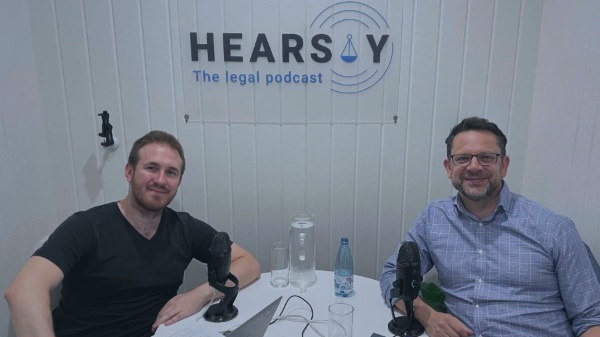Episode Number: 110
Episode Name: Finding the Path: A Legal Recruitment Sherpa’s Guide to Job Hunting
Guest: Andrew Murdoch
Finding the Path: A Legal Recruitment Sherpa’s Guide to Job Hunting
Andrew Murdoch joins David Turner at Hearsay The Legal Podcast for an excellent discussion of whether cover letters still hold value, the best time of year for job searching, and the importance of a career objective. Enjoy!





